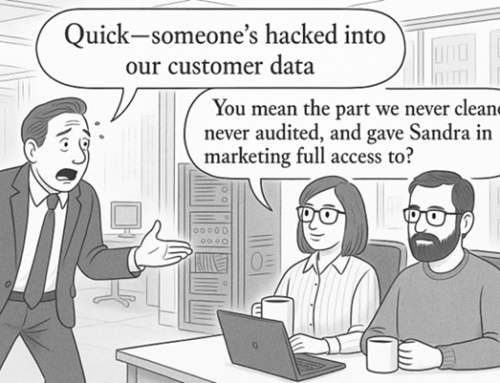Dirty data is costing the UK economy £900 billion.
The impact of unclean data is estimated to stand at 20% of an organisation’s revenue. In 2023 revenue of UK business is thought to total £4.5 trillion meaning that failing to keep customer data up-to-date cost £900bn.
In terms of the impact of this on individual businesses, a single ‘inaccurate’ customer record is currently costs an organisation £81.11. Experian research reveals that 22% of customer records within the average database are inaccurate. This means that an organisation with a database comprising 500,000 customer records could be looking at a £811,000 cost to the business.
The retail sector was found to have the highest associated cost of unclean data at £300bn, whilst the education sector was the least at £5.4bn
The cost of dirty data by sector
| Retail | £300bn |
| Manufacturing | £121bn |
| Professional services | £91bn |
| Construction | £74bn |
| IT | £71bn |
| Utilities | £40bn |
| Healthcare | £21bn |
| Food and accommodation | £21bn |
| Property | £14bn |
| Entertainment | £14bn |
| Agriculture, forestry and fishing | £10bn |
| Education | £5.4bn |
The study categorises unhygienic data into 4 main types: inaccurate data, duplicated data, deceased data and goneaway data
- Inaccurate Data: This is the most common form of dirty data and accounts for a significant portion of the overall cost. it includes inaccurate contact information, such as postal addresses, email addresses or phone numbers. It is the primary driver of inefficiencies in marketing campaigns, customer communications, and lost sales opportunities.
- Duplicated Data: Duplicate records are not only a waste of storage space but also result in erroneous reporting and skewed analytics. Identifying and merging these records is a time-consuming task for data professionals, further increasing the cost.
- Deceased data: Keeping records of deceased individuals is not only costly but also ethically questionable. Such data leads to brand damage and can cause distress to the individuals’ families.
- Goneaway data: Outdated contact information can result in substantial mailing costs and marketing efforts targeting the wrong audience.
The financial consequences of dirty data go beyond the initial data cleansing efforts. They encompass:
- Brand Damage: Poor data tarnishes a company’s reputation by causing embarrassing mistakes and sending inaccurate communications to customers.
- Marketing to Unreachable Recipients: Inaccurate contact information leads to wasted marketing spend as messages are sent to recipients who will never receive them.
- Storage Costs: The more data an organisation has, the more it costs to store. Dirty data inflates storage expenses, making efficient data management more challenging.
- Impact on data science: Unclean data adversely affects the performance of AI and machine learning algorithms, leading to incorrect insights and decisions.
Comments Martin Rides, Managing Director of The Software Bureau, regarding the impact of dirty:
“Our findings underscore the urgency for organisations to invest in data quality solutions. The £900 billion annual cost is not only a financial burden but also an impediment to business growth and innovation. As data continues to be a vital asset in today’s digital economy, we must acknowledge the importance of clean, accurate data to thrive in a competitive market.”





